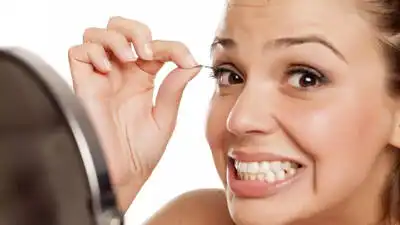This might sound bizarre to some people, but relatable to others. The habit of pulling eyelashes or eyebrows can give a deep insight into someone’s psyche. More often than not, the urge to pull hair stems from anxiety, depression, or compulsive negative thoughts. The act of plucking eyelashes, despite being painful, may bring a sense of satisfaction or temporary relief that encourages its repetition. What exactly drives this impulse or behaviour? There might be a psychological explanation.
The root cause
Trichotillomania is a mental health condition, where a person has a strong urge to pull their hair from eyelashes, eyebrows, scalp, face, and other body parts. Some people after plucking their hair may examine the pulled hair or simply swallow them. This may lead to hair loss. The compulsive hair pullers find anxiety-relief in fulfilling their impulse. How, resistance may cause increase in irritation and tension.
The hair pulling disorder typically begins between 9-13 years and may last for lifetime if not treated. Boredom, anxiousness, stress, conflict and other such uncomfortable emotions can trigger it. The act of pulling hair is preceded by an intense or forceful desire of plucking, followed by a sense of relief. Trichotillomania falls into the spectrum of Obsessive-Compulsive and related disorders.
Causes of TrichotillomaniaOne may have a hereditary predisposition, or the habit may start as a way to regulate emotions. There may be neurobiological, and environmental factors behind it. However, with time, one may form a habit.
Not all people suffer from exactly the same intensity of symptoms. For some, it may be mild and can be managed. While for others, the automatic or deliberate urge to pull out hair is too much to handle emotionally.
Its consequencesTrichotillomania can have serious emotional and physical consequences. Repeatedly pulling out hair – whether from the scalp, eyebrows, eyelashes, or other areas – can lead to noticeable bald patches, skin irritation, and even permanent hair loss over time.
Many people experience intense shame, guilt, or embarrassment, which can impact self-esteem and lead to social withdrawal.
